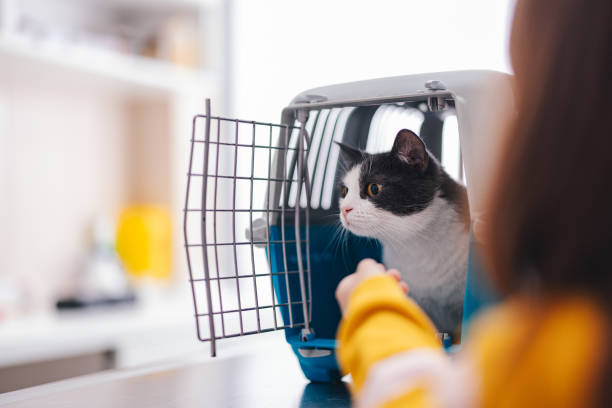The Importance of Cat Dental Care – Cats are known for their independent and often aloof nature, but when it comes to their health, every responsible pet owner knows the importance of comprehensive care. While regular vaccinations, a balanced diet, and grooming are crucial components of feline well-being, one aspect that is often overlooked is cat dental care.
Just like humans, cats can suffer from dental issues that, if left unattended, can lead to serious health problems. In this article, we will delve into the significance of cat dental care and provide practical tips for maintaining your feline friend’s oral hygiene.
The Basics of Feline Dental Anatomy
Understanding a cat’s dental anatomy is the first step in recognizing the importance of dental care. Cats, like many other carnivores, have teeth adapted for hunting and tearing. Their dental structure consists of incisors for nibbling, canines for tearing, and molars for grinding.
Adult cats typically have 30 teeth, and their oral health is essential for various reasons, ranging from proper nutrition to preventing systemic diseases.
Common Dental Issues in Cats
Just like humans, cats can suffer from a variety of dental problems, and these issues can impact their overall health. Some of the most common dental issues in cats include:
Gingivitis: Inflammation of the gums is a prevalent issue in cats, often caused by the accumulation of plaque and tartar. If left untreated, gingivitis can progress to a more severe condition known as periodontitis.
Periodontitis: This advanced stage of gum disease involves the inflammation and infection of the supporting structures of the teeth. It can lead to tooth loss and may even impact vital organs if the bacteria enter the bloodstream.
Tooth Resorption: This painful condition occurs when a cat’s body begins to absorb the minerals from the tooth, leading to its deterioration. Tooth resorption is a common problem in older cats and can cause discomfort and difficulty in eating.
Bad Breath (Halitosis): Persistent bad breath can be a sign of underlying dental issues. It is often caused by the buildup of bacteria in the mouth and can indicate the presence of gingivitis or other dental problems.
The Importance of Cat Dental Care
Maintaining good oral hygiene in cats is not just about preventing bad breath; it is a crucial aspect of their overall health and well-being. Poor dental health can lead to a range of problems, including:
Pain and Discomfort: Dental issues such as gingivitis and tooth resorption can cause significant pain and discomfort for your cat. Cats are masters at hiding signs of pain, so it’s essential to be proactive in preventing and addressing dental problems.
Read too: A Comprehensive Guide to Pet Insurance with Wellness
Difficulty Eating: Dental problems can make it painful for a cat to chew, leading to a reluctance to eat. This can result in weight loss and malnutrition, affecting the cat’s overall health.
Systemic Diseases: Untreated dental issues can contribute to the development of systemic diseases. The bacteria associated with gum disease can enter the bloodstream and affect vital organs, such as the heart, liver, and kidneys.
Shortened Lifespan: Poor dental health can contribute to a shortened lifespan in cats. Regular dental care can help prevent or mitigate these issues, ensuring a longer and healthier life for your feline companion.
Practical Tips for Cat Dental Care
Now that we understand the importance of cat dental care, let’s explore practical tips to ensure your feline friend maintains optimal oral hygiene:
Regular Dental Check-ups: Schedule regular veterinary check-ups that include a thorough examination of your cat’s oral health. Your veterinarian can identify early signs of dental problems and recommend appropriate treatment.
Professional Dental Cleanings: Professional dental cleanings performed by a veterinarian are crucial for removing plaque and tartar buildup. These cleanings may involve scaling, polishing, and, if necessary, tooth extractions.
At-Home Dental Care: Supplement professional cleanings with at-home dental care. Introduce your cat to tooth brushing using a cat-specific toothbrush and toothpaste. Start slowly and be patient, gradually increasing the frequency of brushing.
Dental Treats and Toys: Offer dental treats or toys designed to promote oral health. These products can help reduce plaque and tartar buildup while providing entertainment for your cat.
Dietary Considerations: Choose a balanced and nutritious diet that promotes dental health. Some cat foods are formulated to support oral hygiene by reducing plaque and tartar formation.
Regular Monitoring: Keep a close eye on your cat’s behavior, eating habits, and breath odor. Any changes in these areas could indicate underlying dental issues, prompting a visit to the veterinarian.
Provide Fresh Water: Ensure your cat has access to fresh water at all times. Adequate hydration is essential for maintaining saliva production, which helps naturally clean the teeth.
Read too: 8 Reasons Why Cats Don’t Want to Eat and How to Overcome them
Conclusion
Cat dental care is a fundamental aspect of responsible pet ownership. By prioritizing your cat’s oral hygiene, you can contribute to their overall health and well-being. Regular veterinary check-ups, professional cleanings, and at-home dental care are essential components of a comprehensive approach to feline dental health.
By understanding the importance of cat dental care and implementing practical tips, you can ensure that your feline companion enjoys a happy, healthy, and pain-free life.

